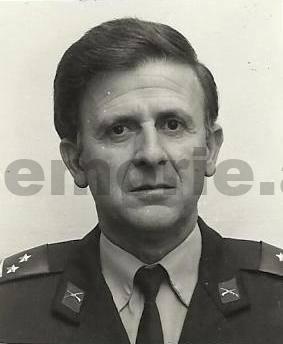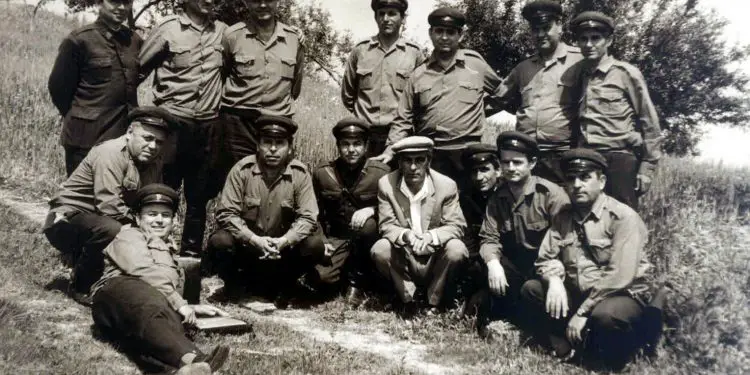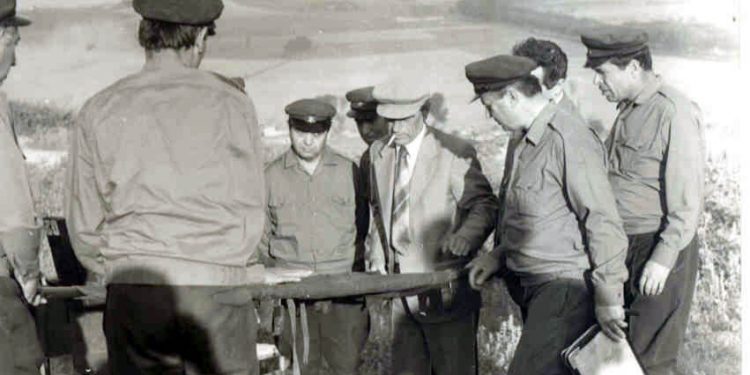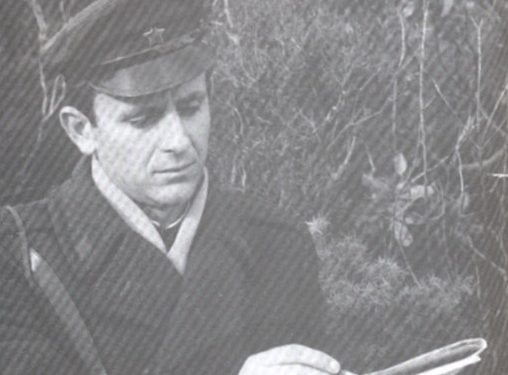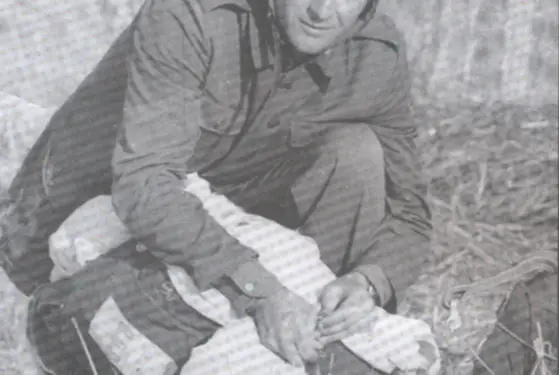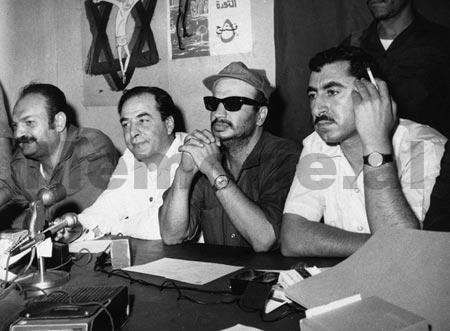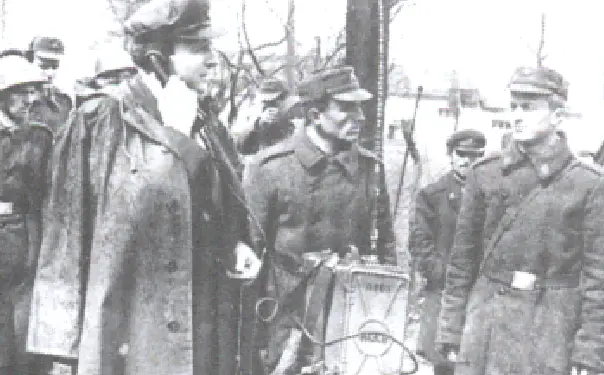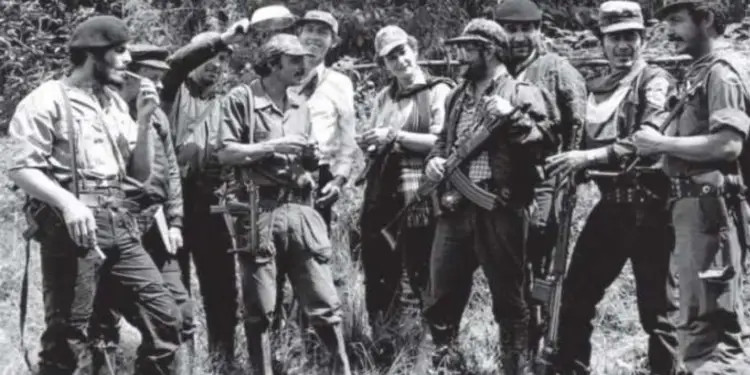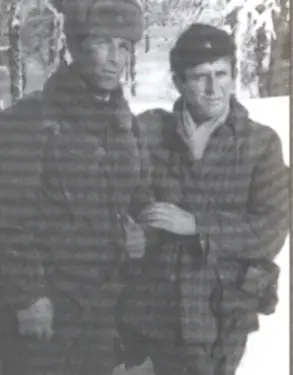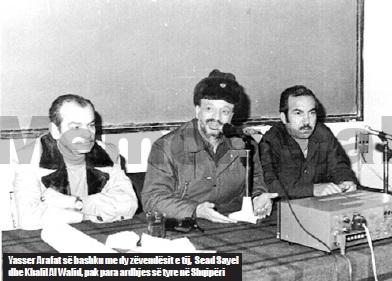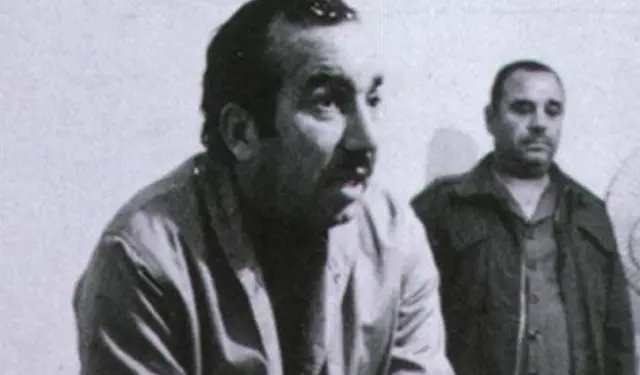Dashnor Kaloçi
Memorie.al publishes the testimony of the former senior military, retired lieutenant colonel, Gani Elezi, one of the officers of the Intelligence detachment in Zall-Herr, Tirana, who in ’71, for six months trained a group of Palestinians of Al-Fatah. What were the priority exercises that the Arabs were subjected to and why did they demand that their preparation focus on guerrilla warfare in cities, explosives and operations against helicopters …?!
In the early 1970s, in one of his books, entitled “Imperialism and the Revolution”, which the former communist dictator of Albania, Enver Hoxha, and the propaganda of the regime of that time considered as one of the masterpieces of he wrote, among other things: “The world revolution is no longer just an aspiration of oppressed peoples, but an obvious problem posed for solution.” In this context, starting from the delirium that had involved Enver Hoxha at that time, (who after the breakup with China, claimed to be the only Marxist-Leninist leader of the world proletariat) the senior communist leadership of the ALP, gave ok and began to receive in Albania many delegations, individuals and different groups from the five continents of the world, whom he considered friends, Marxists-Leninists and revolutionaries who fought for the triumph of the World Revolution. A part of these groups that represented the political wing of the communist parties with which the ALP was affiliated, came to Albania on the occasion of the ALP congresses, or for vacations in the leadership villas, while other groups that represented the military wing of the ALP. their parties, came here to train militarily. In this context, a few years ago, on the proposal of Enver Hoxha and the decision of the Politburo, the senior Albanian leadership had opened a special fund in foreign currency (millions of dollars), called the “Solidarity Fund”, which was intended to help and fund these various parties and groups, many of which were ghosts. One of those groups of the military wing that came to Albania at that time, was that of the 30 Palestinians of Al-Fataut, who in January 1971, for six months in a row trained at the Intelligence detachment in Zall-Herr, Tirana. , which at that time constituted one of the elite units of the Albanian Army. In this regard, testifies exclusively for Memorie.al, the former senior military and retired lieutenant colonel, Gani Elezi, one of the officers of that special unit that was in charge of training and leading that group of Palestinians.
follows from the previous number
Mr. Elezi, in other subjects such as Chemistry or Topography, who were the officers who taught with the Palestinian group?
Chemistry was taught by Behar Zhurda, who later became Enver Hoxha’s main companion, while Topography was taught by Adem Çopani, who later served as military adviser to Prime Ministers Mehmet Shehu and Adil Çarçani, until President Sali Berisha. (In 1997, Chopani also served for several months as Chief of General Staff)
Were the Palestinians correct during the exercise?
Not only were they fairly correct, but I would not exaggerate to say that they considered their training sacred. To illustrate this, I’m telling you that in the event of a disciplinary breach, or non-compliance, the most severe punitive measure given to them by the group leader, Yasin, was a one-day suspension from training. When I learned such a thing, I suggested to Yasin not to apply that measure anymore. But like all such groups and they had their own disagreements and contradictions about position and future. This became more apparent in the reports of the boys who came from the ranks of Al-Fataut fighters, and those who came from the western countries, who had higher education and training and who could occupy more favorable positions. in the future political and military structures of their state. Such a thing was expressed to me by one of them, named, Aby Tarek. He himself came from groups of Al-Fataut fighters, but had other clues and links that put him in the favorites group.
After the training, what did they do, how did they spend their free time and were they allowed to go out on the town?
After the training, they continued the schedule of activities according to the program, studying in the established class apostrophes for them, etc. They only went out in the city on free Sundays, and in all cases I was in charge of accompanying them. Of course, they were distributed in small groups when they went out in the city of Tirana, but even during that time everything was done in an organized way. We also sent them for various visits to the cities of Shkodra, Gjirokastra, Berat, etc., where they remained quite satisfied.
What uniforms do they wear in the city?
Among other conditions, the Ministry of Defense, through the Military Workshop in Tirana, provided all members of the group with civilian uniforms (dock suits, shirts and shoes) which they wore when leaving the city.
How long did their training last and with what results did they come out?
Their training, which was very intense, lasted for 6 months (January-June 1971) as planned and in the end, they achieved a very high degree of perfection, the same as the two-year level of the United School of Officers “Enver Hoxha”in Tirana. This had more to do with our preparation as teaching staff than with their demands and dedication. They were very diligent after training and asked a lot of questions, which showed their great interest in training. This was related to the fact that a part of them, like Abu Tarek Mahmut, came directly from the actions and combat actions, and behind each of their questions, hid a concrete situation that they had gone through.
At the end of the training, did they take the exam, as was usually the case with schools and military courses at the time?
At the end of the six-month training process, we did not organize exams, but summary training with various tests and demonstrations where they performed quite well. My colleagues and I were quite pleased with the degree of their preparation.
During that six-month period that they trained with you in Zall-Herr, was any political or military leader from their Palestinian headquarters interested in their performance?
On one occasion here in Zall-Herr, accompanied by a representative of the Ministry of Defense, came one of their political leaders, Al-Fataut, the political wing of the Palestine Liberation Organization, led by Yasser Arafat. Talks with him took place in the office of the commander of our unit and he took a long and wide interest in all members of the group and their progress in training. After that he left thanking us for everything, we had done for them.
How do you remember the end of the training process and the split with the Palestinian group?
At the end of the training process, we organized a lunch there in the ward, where the two leaders of the group, Yasini and Zijati, but also all the other members, thanked us for everything we had done for them. Many of them told us that they would find opportunities to meet with us again. I remember that one of the leaders of the group, as a sign of gratitude, said that when they went to their place, one of the exercises would be coded: “Kumandam Ganiu”, as they called me. Then we parted with them, and, by a bus of the Ministry of Defense, they traveled in the direction of Rinas, leaving Albania. We were not told where they were going, but as far as we heard, they traveled either to Italy or to Egypt.
In addition to that group, did other groups come to Zall-Herr to train, and during your military career, have you had the opportunity to train other foreign groups in other units where you have served?
No, he was the first and last group to come to us in Zall-Herr, I’m talking about the period I served there. I personally have not had the opportunity to conduct trainings with other foreign groups, but my colleagues have dealt with them in other departments in Tirana and other districts of the country. For example, I know that in those years some other groups from Indonesia, Africa and Latin America were trained in a ward in the districts of Shkodra and Korça.
Testimony of the former senior military to the Palestinian leader
“One of the leaders of Al-Fataut, in the training of the Albanian Army”
In his exclusive interview for Memorie.al, the former senior military, retired lieutenant colonel, Gani Elezi, who in the early 1970s, commanded a reconnaissance detachment company in Zall-Herr, Tirana, also confesses the real reason why the group of 30 Palestinians of Al-Fataut, came to train in Albania. According to Elez, during a large exercise that the Intelligence detachment was conducting at that time, (after 1968 – when Albania de jure withdrew from the Warsaw Pact, the Albanian Army conducted large exercises to demonstrate its strength. Our note), there was also a Palestinian delegation, led by Al-Fatawi’s Chief of Foreign Affairs, the political wing of the Palestine Liberation Organization, led by Yasser Arafat. During that exercise he was amazed by the high level and level of combat readiness of our Intelligence troops, and in talks he had with senior Albanian authorities, asked them to look into the possibility of a group of Palestinian fighters coming and to train in Albania. His request was immediately accepted by the senior Albanian leadership, which supported the fight of the Organization for the Liberation of Palestine, considering it a just war for the liberation of the lands occupied by Israel. “This made it possible for a group of 30 Palestinians to come and train for six months in our Zall-Herr unit, which was an elite special unit of the Albanian Army.”
Ex-military: “The letters that came to me later from the Palestinians did not give me”
Former senior military, retired lieutenant colonel Gani Elezi, who in 1971, for six months in a row, led the training of a Palestinian group of Al-Fataw, also recounts his later relationship with some of the members of that group. Regarding this, Elezi testifies: “During those six months that the group of Palestinians trained in our ward, we established friendly relations with them, which was also reflected during the separation, where they did not know how to thank us. Even this respect they created for us, they expressed with the letters they sent several years after they left Albania. Their letters never fell into our hands, (because according to the rules of that time, they did not give them to us) but that thing was told to me in secret, by the Chief of Army Intelligence, Andon Sheti, about whom I have the most memories good. From their letters, I received only one, which was given to me by Pavlo Vangjeli, a colleague and friend of mine at the Ministry of Defense. The one who sent that letter was one of 30 Palestinians who had trained with us in Zall-Herr, and the letter came from Syria. Almost the entire letter was filled with thanks for me and and nothing else was said there. I never learned their fate, what happened to them and where they ended up after leaving Albania, or how much the training they did with us was worth. “After the ’90s, I got in touch with the Palestinian embassy in Tirana, but I could not contact any of those 30 Palestinians we had the opportunity to train in 1971 in the Zall-Herri ward” /Memorie.al




